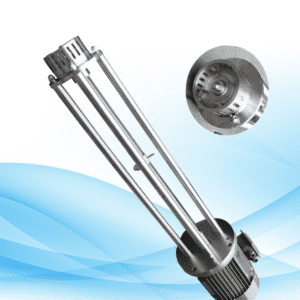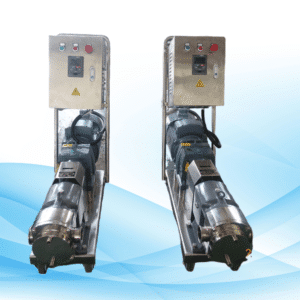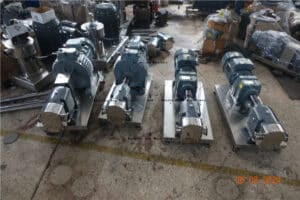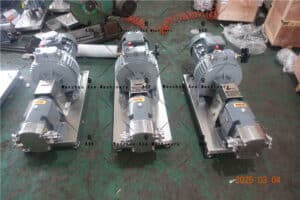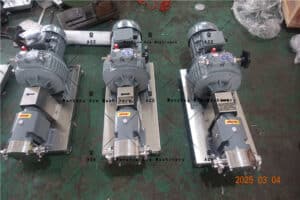The Composite Industry, Automotive Sector, and Manufacturing Field
The Composite industry, automotive sector, and manufacturing field greatly benefit from resin transfer pumps as they make the transfer of resin much easier. The infusion and molding process is very time-consuming, but this tool makes the process more efficient. In this article, we will cover everything you need to know about resin transfer pumps including its purpose, application, advantages, and the process in detail.
What exactly is a Resin Transfer Pump?

Resin transfer pumps are used for transferring resin from one high pressure container to the other. The aerospace, automotive, and construction industries require the infusion of resin composite materials for which these pumps are used.
Key Factors of the Resin Transfer Pump
Efficiency
These pumps can be used on a large scale throughout the day, which enhances the manufacturing processes.
Durability
The high-pressure conditions are easily handled by resin transfer pumps, which enhances their reliability.
Precision Control
The amount of resin transferred can be controlled, which enables the manufacturing process to be carried out smoothly.
Fundamentals of Resin Transfer Pumps
Two engineering principles are employed by resin transfer pumps to facilitate the flow of resin throughout a system: Positive Displacement and centrifugal force. The resin is then transported to a mold where the resin is injected into it while under pressure—ensuring that the resin squeezes into every cavity within the mold seamlessly.
Resin Transfer pumps are essential devices when it comes to creating composite materials including carbon fiber and fiberglass in composite manufacturing industries. The area they are employed in has precise resin flow requirements during the embedding stage to ensure that the end product is robust and durable.
Applications of Resin Transfer Pumps
1. Composite Manufacturing
Even if resin transfer pumps can be applied to a wide range of fields, they are critical when it comes to the automotive industry. Specifically, the pumps are used to infuse fibers with resin along with fabrics that are then cured, producing lightweight and strong composite materials. The performance of the resin delivery pumps determines the end composite’s ability to meet predetermined conditions, like strength and rigidity.
2. Automotive Industry
In the automotive industry, Resin transfer pumps are employed to make lightweight parts for cars. This includes car body panels, structural components, and even polymer-infused parts. The final touch for all of these items is the injection of resin in order to make sure the components adhere to the specified performance and safety requirements.
3. Manufacturing in the Aerospace Sector
The traits of aerospace composite materials describe them to be lightweight as well as strong, so the aerospace engineering processes composites in a highly accurate manner. To keep up with the stringent requirements of the aerospace industry, parts creation has a lot of use of resin transfer pump units.
4. Construction
In construction, resin transfer pumps are used for applications like the production of concrete composites and for making durable molds and forms. The units ensure uniformity in resin distribution, which is critical in enhancing the strength and durability of the end product.
Merits of Employing Resin Transfer Pumps
1. Increased Efficiency
The process of resin infusion is made less tedious through the use of a resin transfer pump by ensuring a smooth flow of resin to achieve an even debunking, which reduces the amount of manual handling required for the process, thus having a wide range of benefits to the business.
2. Increased Precision
These units enhance the dispensing mechanism by making it easy to control the amount of resin given out, which is important in many applications. It ensures the quality standard for the pollen, as the end product has zero defects.
3. Less Waste
Resin transfer pumps have internal structures that function at achieving maximum control over resin transfer, which helps save on the amounts of waste residue produced. This is of great importance to the aerospace and automotive industries, where the costs of materials are extremely high.
4. Flexibility
Pump Units for Flame Resistant Resins and Oil-based Coatings are used for resin transfer, molding, and painting processes to name a few, making them very useful to different industrial sectors.
Factors to Consider While Purchasing Resin Transfer Pumps
1. The Type of Resin in Use
Resin varies in viscosity and chemical properties; hence, a specific pump should be used suited to the particular resin in use, especially the highest viscosity in this case. This ensures a quick transfer process of the resin.
2. Capacity of the Pump
The amount of time taken for the transferring of the resin to occur is dependent on the capacity rated on the pump. In high volume situations, the capacity on the pump gears should be high enough to meet the production requirements.
3. The Considerations of Pressure
In certain applications, procedures might require high-pressure in order to transfer adhesive or glue resin into the molds or other structures, as noted above. Ensure your process meets the required pump specs.
4. Desires for Maintenance
It’s crucial to remember that your resin transfer pump will continue to work correctly as long as you complete the recommended pump-maintenance procedures. Uncomplicated maintenance designs tend to work better.
Frequently Asked Questions Regarding Resin Transfer Pumps
1. Is it possible to use different types of resins while using a resin transfer pump?
Yes, there are many resins such as polyester resins, vinyl ester resins, and epoxies that can be transferred through a resin transfer pump. However, the type of resin to use depends primarily on the application at hand and what properties are required in the result.
2. Are resin transfer pumps practical for transferring resins in small businesses?
Absolutely, these pumps come in many sizes and shapes, which allows them to be fitted for both small businesses or large industrial settings.
3. How often does the pump and its components require servicing?
This greatly depends on the usage of the pump. If it’s constantly in use, we recommend maintenance checks once a month at minimum to ensure the pump is working properly.
4. What is the typical price range of a resin transfer pump?
Due to the manufacturing company, its function, and size, the price can vary. Some of the pumps are generic and affordable, whereas others can be very costly.
5. What is the expected lifespan of a resin transfer pump?
Regular cleaning and maintenance of the pump help ensure its optimal work efficiency. With proper care, a regular pump can last for many years.
Conclusion
As discussed, resin transfer pumps are a necessity in the domain of resin infusion, molding, and other applications that require accurate filling and molding of resin. They are paramount in the process of production and manufacturing of composites and are widely used in the automotive, aerospace, construction, and other industries. Factors such as the type of resin, pump capacity, and pressure requirements should also be considered when selecting a pump. Such measures can enhance the effective processes of manufacturing, and hence, the desired output can be attained with efficiency.







